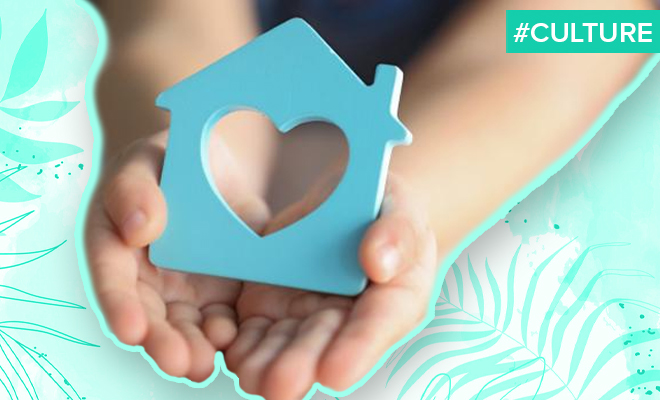As Maharashtra Gets Ready To Implement Foster Care Scheme, 40 Orphans To Get Families. But Will This System Work Within Indian Society?

If you, like me, watch too much of American television, you’ll probably be familiar with the term ‘foster care’ or ‘raised in foster homes’. For those who aren’t, foster care is a system in which a minor (either an orphan or a child in need of care and protection) is placed into the care of a state-certified caregiver or family, referred to as a foster parent or foster family. The foster parent/foster family provide a a safe and homely place for the child to grow in before they can be adopted. In India, the foster care system hasn’t seen much implementation. However, now, Maharashtra has initiated the foster care scheme in the state which will ensure 40 orphans get placed into foster families.
According to this scheme, children below the age of 11 years may be placed in foster care, which will be supervised by child welfare committees in the state. Under the foster care scheme, the children in need of care and protection can either be placed in foster homes under the ambit of the Women and Child Welfare Department, get sponsored guardianship, or eventually even be adopted. While adoption is permanent, the foster care scheme serves as a temporary safe house on the way.
TOI reports that the 40 children are from orphanages in Mumbai, Pune, Solapur, Amaravati and Palghar. The Women and Child Welfare Commissionerate in Pune has opened online registrations for those who want to register themselves as foster parents as part of the scheme. They will be chosen on the basis of their abilities and capacity, intent, and prior experience of child care. Once selected through a rigourous process by the District Child Protection Unit, the foster parent/family will receive Rs 2000 per month from the government to look after their foster child. The WCF department has already put in place a set of guidelines and will also conduct training sessions for childcare institutions.

Also Read: #Trending: In An Attempt To Make The Streets Safer And More Inclusive For Women, Aditya Thackeray Makes Traffic Signals To Also Depict Women. Is This Really Enough?
This is the first time that the state of Maharashtra is kicking off foster care system, and it will be interesting to see how it works, and whether it is better than institutionalisation of minors, which has been the norm so far. Families are always a much better setting to grow up in than institutions and that’s exactly what this scheme aims to provide. Earlier, under the Juvenile Justice Act, there was no distinction between juveniles in conflict with law (convicted delinquents of undertrials) and juveniles who needed care and protection (orphans, children who needed to be removed from their homes due to abuse or other safety concerns). However, this difference was recognised in 2006 and the Juvenile Justice (Care and Protection) Act 2015 laid down provisions for the foster care system, with its Chapter 6 detailing the rules that would govern foster care in India.
Once again, if you’ve watched a lot of American television, you’ll know that it is difficult to find a foster guardian with the right intent who isn’t just motivated by the monetary incentives given by the government but wants to actually raise a child. Furthermore, the West depends highly on the foster care system because their concept of families is rather nuclear. In India, joint families ensure that the next of kin is often an easy option to place the child with. Finally, our own limitations as a society that is rigid about religion, caste, sex, and other differential factors prevents could be a hurdle that will need to be overcome to ensure an efficient implementation of the foster care system.
Foster parents who have been fostering a ward for five years can even petition for the adoption of the child. It is imperative that the foster care scheme works, under a careful scrutiny of the child welfare committees, because it could make a world of difference if children are brought up in a warm, loving and safe family environment rather than in institutions where they might feel alone and unloved.

















